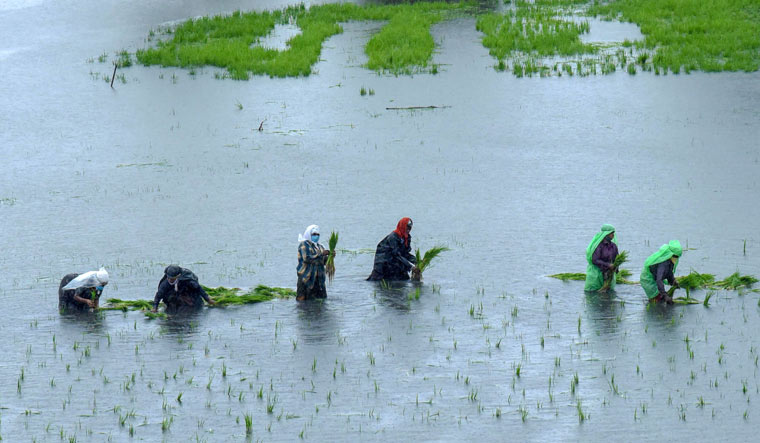Prime Minister Narendra Modi has officially released India's first-ever non-GM (genetically modified) herbicide-tolerant rice varieties today.
The rice varieties named Pusa Basmati 1979 and Pusa Basmati 1985, developed by scientists at the Indian Agricultural Research Institute (IARI), can save significant amount of water and need less labour compared to conventional transplanting as they can be directly seeded.
Pusa Basmati 1979 and 1985 have been developed by crossing well-known popular varieties—Pusa 1121 and Pusa 1509, respectively— with Robin, which is a drought-tolerant rice variety derived from Nagina 22.
Imazethapyr, a chemical used on crops for weed control management, can’t be used on normal paddy, as the herbicide does not distinguish between the crop and the invasive plants. But in the case of herbicide-tolerant rice, the chemical will destroy only the weeds.
The newly developed rice vareities contain a mutated acetolactate synthase (ALS) gene, which allows farmers to use Imazethapyr. The ALS gene in rice codes for an enzyme (protein) that synthesises amino acids for crop growth and development. Thus the herbicide can be safely used for new rice varities as it kills only the weeds.
The advanatage is that famers farmers need not have to raise plants in nurseries before replanting them to the paddy field after three or four weeks. So they can save significant amount of water and labour.
Paddy cultivation is both labour and water-intensive as nuseries and paddy field need to supplied with sufficient water to maintain a water level of 4-5 cm. All these add to the expense of farmers.
Director of IARI, AK Singh said, “Water is a natural herbicide that takes care of weeds in the paddy crop’s early-growth period. The new varieties simply replace water with Imazethapyr and there’s no need for nursery, puddling, transplanting and flooding of fields. You can sow paddy directly, just like wheat."




